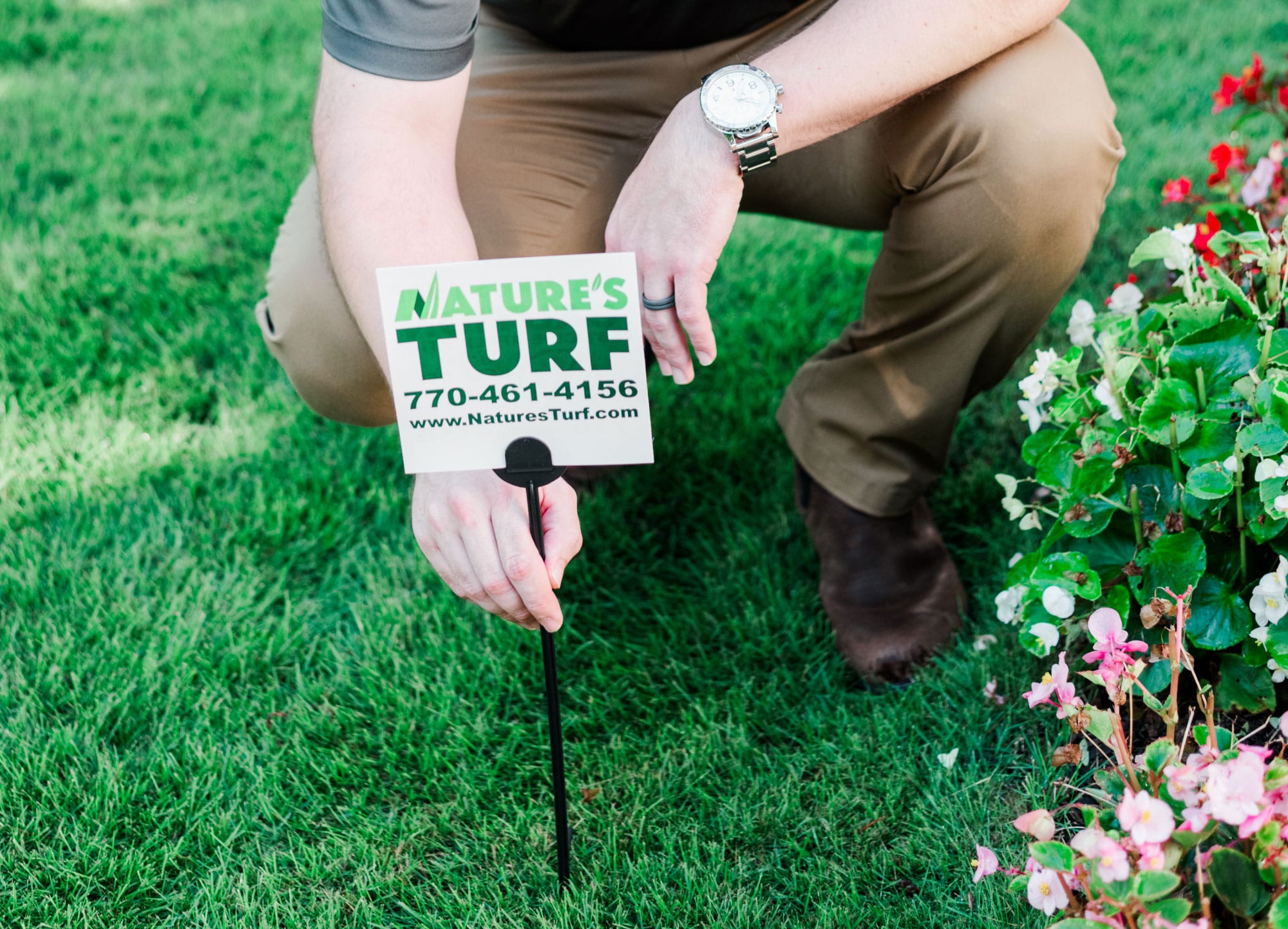The Georgia summer is when Bermuda grass truly “shines” as it grows into a dense carpet with that signature vibrant green. Yet, all of that beautiful growth doesn’t happen overnight…or without proper maintenance. Ultimately, the single most important thing you can do for your Bermuda grass this summer is fertilize, fertilize, fertilize.
At Nature’s Turf, we’ve seen firsthand the impact that proper fertilization can have on a yard. But why does it matter? What is the right way to fertilize? Below is a quick breakdown from the team at Nature’s Turf, providing lawn care services across metro Atlanta, so you can have the best-looking lawn on the block.
Why Fertilization Matters for Bermuda Grass
Bermuda is a warm-season grass, which, believe it or not, means it grows most actively during the warmer months (specifically from late spring to early fall in Georgia). So, to encourage deep roots and a rich color, Bermuda needs a steady supply of nutrients during that time frame. Without fertilization, Bermuda grass can:
- Turn pale or yellowish
- Grow slowly or unevenly
- Develop bare patches
- Become more vulnerable to weeds and drought
Furthermore, in Georgia’s hot, humid summers, the demands on your lawn are even higher. Intense sunlight and frequent mowing mean your Bermuda grass is constantly working to grow and repair itself. Think of Fertilizer as the fuel for this process.
What Kind of Fertilizer Does Bermuda Grass Need?
Now that you understand why fertilization matters, what is the best kind to “feed” your Bermuda grass? For lawns in Georgia, the best summer fertilizers are nitrogen-rich and slow-release. Nitrogen is what promotes lush green growth, and a slow-release formula ensures your lawn gets a consistent supply over several weeks…without the risk of burning the grass or causing a quick moment of weak growth.
At Nature’s Turf, we use a custom-blended fertilizer specifically designed for Georgia’s climate and our turfgrasses. Our professional treatments ensure your yard gets exactly what it needs, without overfeeding.
When to Fertilize This Summer
When it comes to prime grass growth, timing is everything. Fertilizing too early in the spring can waste product on dormant grass (click here to see what dormancy means for your lawn), while fertilizing too late in the fall can promote growth as the grass should be slowing down. In Georgia, the sweet spot for summer fertilization is mid-April through August, depending on the temperature and rainfall.
We typically recommend fertilizing every 4 to 6 weeks during the active growing season. While every lawn is different, the foundational needs are the same. High-quality nutrition applied consistently provides the nutrition your lawn needs to thrive in good growing conditions.
The Benefits of Professional Fertilization
DIY fertilization can be tricky. Apply too much and you risk burning your lawn. Apply too little or use the wrong formula, and you may not see any results. With Nature’s Turf, you get:
- Custom fertilization plans for Georgia soil
- Precision application by licensed technicians
- Greener, thicker grass all season long
The Grass is Greener with Nature’s Turf
Fertilization isn’t just one part of summer lawn care; it’s the foundation. If you want to see a real difference in your Bermuda grass this season, start with a plan that feeds it right. At Nature’s Turf, our experienced team will make the correct applications at the best time to ensure your lawn is healthy and weed-free. For more information, contact us today!








